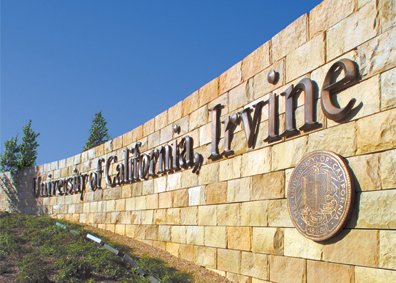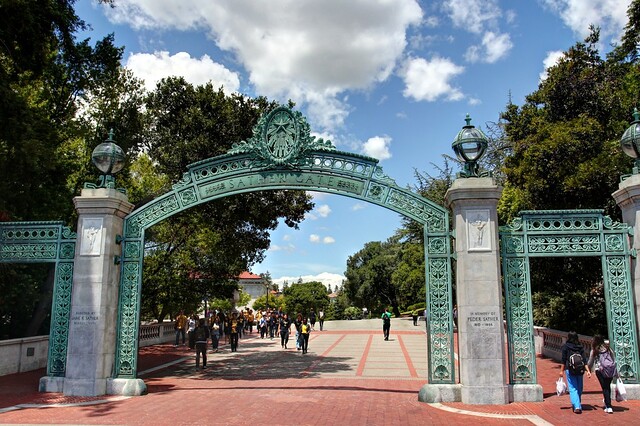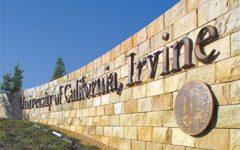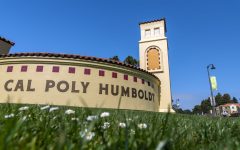
UC Irvine (Photo: cityofirvine.org)
50 Arrested At UC Irvine As Police Break Up Encampment, Retake Building From Protestors
University had resisted police action until campus building takeover on Wednesday
By Evan Symon, May 16, 2024 7:07 pm
Police at University of California at Irvine arrested 50 Pro-Palestinian protestors on Wednesday following the University declaring that the protest has gone “violent”, with law enforcement also breaking up the encampment on campus and retaking as building that protestors had barricaded themselves in earlier that day.
Since late April, several pro-Palestine, pro-Hamas protests and encampments have turned into mass arrest events in California. The first such event occurred on April 24th when protesters refused to leave an encampment at the USC campus in Los Angeles. Law enforcement subsequently moved in, razing the encampment and arresting 93 protestors, of whom over 50 were students. On April 30th, another 35 students were arrested at Cal Poly Humboldt in Arcata when, after a week of occupying 2 buildings on campus, law enforcement officers retook both in a major sweep. Another encampment bust on May 2nd, this time at UCLA, destroyed one of the largest protester encampments in the country, leading to 210 arrests. Less than a week later, 65 were arrested at UC San Diego.
At UC Irvine, protests started off as large but civil in late April and early May. However, following many incidents in California and elsewhere in the country where police turned to more physical strategies to end encampments and building takeover, Irvine protesters grew more restless. Protesting became more disruptive, with incidents of vandalism being reported. Last week, several students were suspended for their part in the increasing strained protests. However, throughout all this, UC Irvine did not bring in the police.
That changed on Wednesday when, at around 2 P.M., many students began going into the nearby Physical Sciences Lecture Hall and began barricading themselves inside. After that, the university immediately called in campus police, as well as officers from the Irvine Police Department, the California Highway Patrol, the Orange County Sheriff’s Department, and a few other local law enforcement agencies, and stormed in within a few hours. Before going in, the University announced that anyone in buildings in the vicinity of the protests and encampment should leave the area, hinting at a large police action about to take place.
“Anyone currently in buildings in the vicinity of the protest are advised to exit buildings & leave area at this time,” said UC Irvine on X on Wednesday. “Please disregard all previous orders to shelter in place. If able, please leave immediately & continue to avoid the protest area until further notice.”
zotALERT: Anyone currently in buildings in the vicinity of the protest are advised to exit buildings & leave area at this time. Please disregard all previous orders to shelter in place. If able, please leave immediately & continue to avoid the protest area until further notice.
— UC Irvine (@UCIrvine) May 16, 2024
The police declared an unlawful assembly and to either disperse or face arrest. While many protesters proved cooperative, others tried to keep police out of the encampment and the campus building with wooden barricades. However, these proved to slow down police little as they quickly took over the encampment and moved into the taken over campus building. The building was retaken within minutes, while the encampment was immediately torn down. In all, 50 protesters were arrested on Wednesday
In a statement on Thursday, UC Irvine Chancellor Howard Gilman noted that the police were the last resort, and that the University had been very tolerant of the protests until they broke into the lecture hall on Wednesday.
“At 2 p.m. on Wednesday, we, along with most other UC campuses, received the latest “demands” from the protesters. The protesters orchestrated a swift departure from their encampment. In a coordinated fashion they moved out of the encampment to the Physical Sciences Lecture Hall, where a small group barricaded themselves in, supported by a large group of community members who had gathered for a scheduled rally.
“For the last two weeks, I have consistently communicated that the encampment violated our policies but that the actions did not rise to the level requiring police intervention. My approach was consistent with the guidelines of UC’s Robinson/Edley Report, which urges the UC to exhaust all possible alternatives before resorting to police intervention.
“And so after weeks when the encampers assured our community that they were committed to maintaining a peaceful and nondisruptive encampment, it was terrible to see that they would dramatically alter the situation in a way that was a direct assault on the rights of other students and the university mission.
“Most importantly, their assault on the academic freedom rights of our faculty and the free speech rights of faculty and students was appalling. One can only imagine the response if people on the other side of these issues established an encampment to force me to censor all anti-Zionist academic and student programming.
“But my concern now is not the unreasonableness of their demands. It is their decision to transform a manageable situation that did not have to involve police into a situation that required a different response. I never wanted that. I devoted all of my energies to prevent this from happening.”
Police intervention
However, Irvine Mayor Farrah Khan chastised the police intervention, saying, “It’s a shame that peaceful free speech protests are always responded to with violence. Taking space on campus or in a building is not a threat to anyone. UCI leadership must do everything they can to avoid creating a violent scenario here. These are your students w/ zero weapons.”
On Thursday, cleanup efforts continued on campus, with protestors now being largely dispersed. Classes at the University were remote on Thursday as well, to help give the University time to recover from what the protestors did. The police also gave an update on the protesters, noting that 40% of the arrested protesters were not students at the University.
“UC Irvine had been criticized before Wednesday for allowing the protests to go too far and for not allowing law enforcement on campus beyond their campus police force,” said researcher Sandy Crane, who studies college protest movements, to the Globe on Thursday. “It really bit them hard. The protesters got too cocky and were seeing no consequences beyond a few suspensions for their escalating protests. But as soon as they went into that building, the University did not want a huge standoff like with what happened at Columbia and Cal Poly Humboldt. So they went in quickly. They went way too far.
“Now protesters have nothing to show for it except for police records and trash bins on campus now holding their signs and discarded Palestinian flags. They took advantage of the University really stretching what the right to protest meant.”
As of Thursday, protests and encampments continue at many California University campuses, but with many protesters now negotiating with Universities to end encampments in exchange for reviewing investments later this year.
- Bill to Require Law Enforcement Disclosure if AI Was Used To Help Write Reports - August 7, 2025
- Gov. Newsom Files FOIA Request To ‘Expose True Cost’ Of L.A. Federal Troop Deployment for Anti-ICE Riots - August 6, 2025
- California Redistricting: How Newsom’s Plan Will Demolish Hard Fought GOP Gains - August 6, 2025




